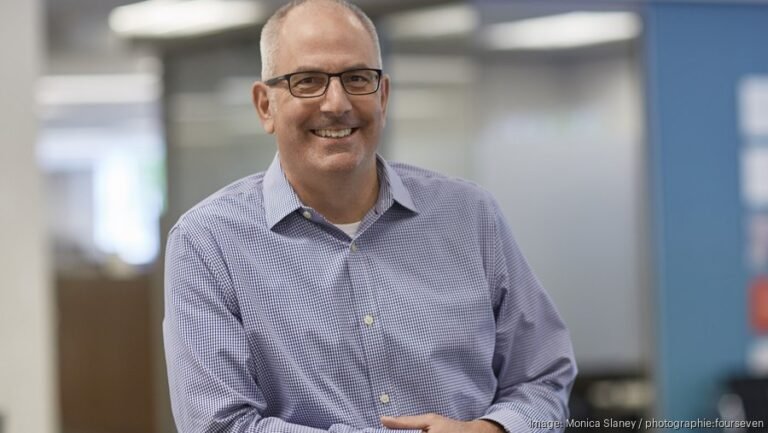Howie Buffett, at 59 years old, is stepping into one of the most pivotal roles in corporate America, tasked with overseeing Berkshire Hathaway’s culture as its nonexecutive chairman. Howie, the middle child of the world-renowned investor Warren Buffett, has spent his career carving his own path, far removed from the shadows of his father’s legendary investment career. While he has always been involved in the family business, his professional journey has been marked by a hands-on approach to leadership, whether through local government, farming, or philanthropy. Now, as the nonexecutive chairman of Berkshire Hathaway, Howie will face a monumental challenge: preserving the company’s unique culture while navigating a rapidly evolving market. This will be no small task, as Berkshire Hathaway stands as one of the most valuable conglomerates globally, with over $900 billion in market value as of 2023, and with the aging Warren Buffett nearing 94, the company’s future leadership is under increased scrutiny.
Howie Buffett’s Path to the Chairmanship
Howie Buffett’s journey to leadership at Berkshire Hathaway is rooted in a unique combination of practical experience and unshakable determination. The son of one of the world’s most successful investors, Howie was exposed to wealth, success, and business at an early age. However, Warren Buffett’s philosophy was always clear: each of his children should chart their own course and not rely on the fortune of their father. As a result, Howie pursued a variety of ventures, never relying solely on his father’s name or wealth. When he purchased a front-end loader to begin a farming venture, Howie didn’t know how to start the machine, but he wasn’t deterred. He learned by doing, which became a hallmark of his approach in other aspects of his life. Similarly, when Howie ran for county commissioner of Douglas County, Nebraska, he didn’t fully understand what the job entailed but embraced the challenge, showing his resilience and commitment to service.
At 59, Howie has developed a well-rounded skill set that will serve him as he takes on the role of ensuring that Berkshire Hathaway’s culture remains intact after Warren Buffett’s eventual retirement. His role as nonexecutive chairman isn’t about day-to-day operations; instead, it will focus on maintaining the company’s ethos—values such as decentralized management, long-term value investing, and respect for employees, customers, and shareholders. Warren’s leadership style has always been unique in the corporate world, emphasizing trust in managers and leaders of Berkshire Hathaway’s subsidiaries to run their businesses independently. Howie must ensure that these principles continue, even as the company grows and faces the realities of an ever-changing market landscape.
The Changing Market and Implications for Berkshire Hathaway
The implications of Howie’s leadership come at a critical time for Berkshire Hathaway. With the market continually shifting, especially as digital transformation and new technology drive major changes in industries, the company must stay agile while preserving its core values. Berkshire Hathaway’s business model has long been rooted in traditional industries like insurance, railroads, and energy, but increasingly, the company has ventured into technology, acquiring companies like Apple and Amazon stock, as well as large stakes in tech giants like Snowflake. As the company expands its portfolio into more modern industries, Howie will need to preserve Warren’s investment philosophy while positioning the company to adapt to new trends.
Berkshire Hathaway’s stock price has been an outlier in a volatile market, growing steadily over the decades under Warren Buffett’s stewardship. However, the future remains uncertain, with many analysts predicting the company will face greater challenges in the coming years. The market is now driven by more rapid cycles of technological disruption and global economic uncertainty. In particular, climate change, new regulatory environments, and increasing competition from both traditional and non-traditional companies will shape Berkshire Hathaway’s future. Howie Buffett will need to ensure the company continues to evolve while protecting its long-standing principles.
Howie’s ability to adapt and lead during times of change will be crucial as he takes on this new responsibility. He will be tasked not only with maintaining the company’s values but also with managing the delicate balance between innovation and tradition. Warren’s absence will be felt, but Howie’s leadership must reassure investors, employees, and the public that Berkshire Hathaway will continue to thrive and honor its principles.
The Role of Nonexecutive Chairman: Ensuring Cultural Continuity
Howie Buffett’s position as nonexecutive chairman of Berkshire Hathaway will be vital for the company’s cultural continuity. He won’t be the CEO, but he will wield significant influence over the company’s long-term strategy, particularly in maintaining the culture that Warren Buffett has so carefully nurtured. The role requires a careful balance of ensuring that the company’s values endure while also adapting to a changing global market. One of Howie’s most important tasks will be working alongside the company’s new CEO, expected to be Greg Abbott, to facilitate a smooth leadership transition. While Greg Abbott has already been identified as the likely successor, Howie’s position as chairman will be key in providing support during this transition and ensuring that Berkshire Hathaway’s decentralized management structure remains intact.
Given the global scale of Berkshire Hathaway’s operations, maintaining this cultural continuity will be no easy feat. The company is made up of more than 60 subsidiary companies in a wide array of industries, and each one operates with a level of autonomy that has become a hallmark of Warren Buffett’s leadership style. Howie’s challenge will be ensuring that this decentralized model continues while navigating the complexities of modern markets, digital technology, and global supply chains.
Legacy and the Future
Howie Buffett’s future at Berkshire Hathaway is, in many ways, a continuation of the legacy his father built over decades. However, the younger Buffett will face new challenges, particularly as global economic shifts, digitalization, and climate change disrupt industries worldwide. At 59, Howie’s experience and adaptability will be essential in ensuring the company’s longevity. The coming years will require him to preserve the culture that made Berkshire Hathaway unique while adapting to the inevitable changes of a fast-evolving market.
While Warren Buffett has been the figurehead of Berkshire Hathaway for more than 50 years, Howie’s leadership could mark a new chapter in the company’s history. Howie has demonstrated time and again that he is ready to face challenges head-on, no matter how unfamiliar they may be. His ability to preserve his father’s values while navigating the complexities of a changing world will determine how Berkshire Hathaway adapts and thrives in the future. In this role, Howie Buffett will not only secure his place in the family’s legacy but also define how leadership, culture, and business innovation intersect in the next generation of corporate America.






